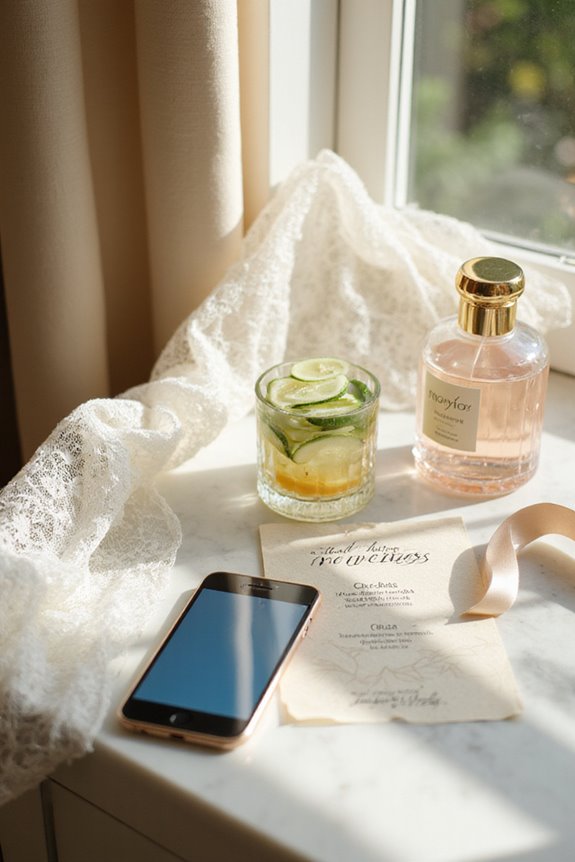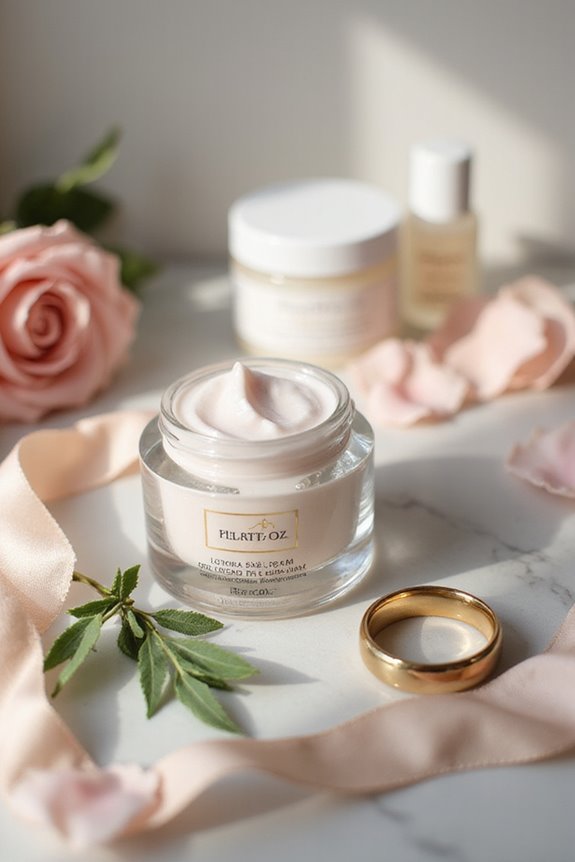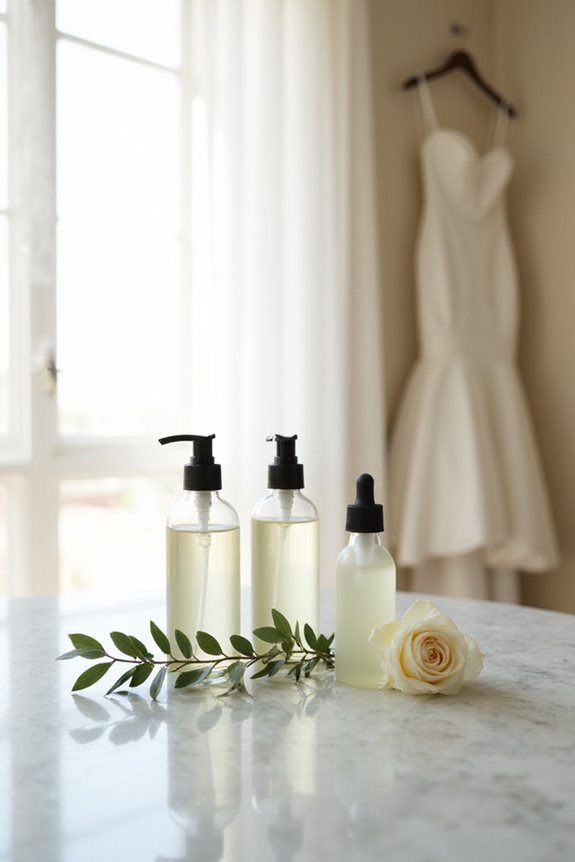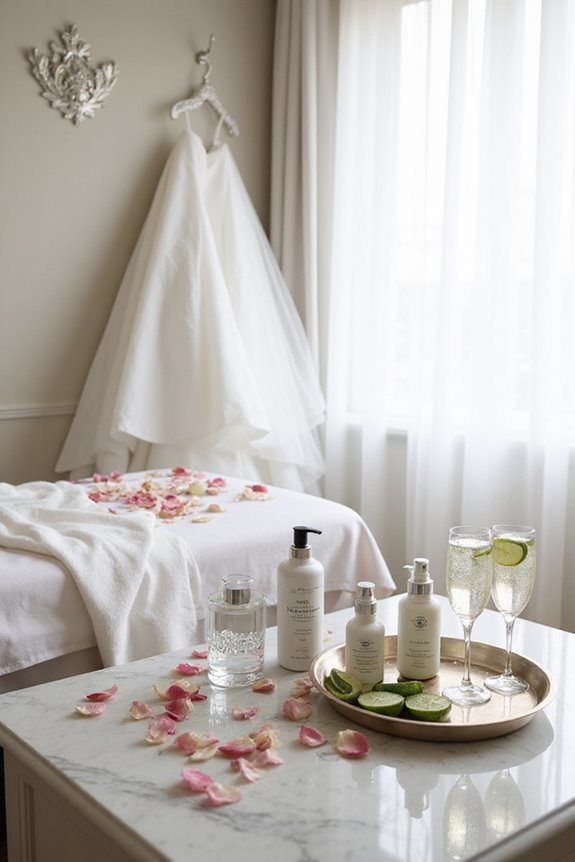To protect our skin from blue light, we need a solid game plan. First, let’s use mineral sunscreens with zinc oxide daily, even indoors. Adding antioxidants like Vitamin C helps to neutralize damage. Don’t forget to limit screen time—taking breaks every hour works wonders. Oh, and adjusting your screen brightness can reduce exposure too! Stick around, and we’ll explore even more smart strategies to keep your skin glowing while battling blue light.
Key Takeaways
- Use broad-spectrum mineral sunscreens with zinc oxide or titanium dioxide to block blue light effectively.
- Incorporate antioxidant-rich skincare products, like Vitamin C, to neutralize free radical damage.
- Take regular breaks from screens to reduce prolonged blue light exposure.
- Enable blue light filters or “night mode” on devices to minimize skin impact.
- Maintain a healthy diet rich in antioxidants, such as berries and leafy greens, for added skin protection.
Understanding Blue Light and Its Effects on Skin
While we might not think twice about the screens we’re glued to—whether it’s our smartphones, tablets, or computers—it’s worth considering how blue light affects our skin. Unlike UV light, which mostly impacts the outer layer, blue light has skin penetration abilities that reach deeper layers. This can lead to oxidative stress and even DNA damage in our skin cells. So, what can we do? First, let’s use broad-spectrum sunscreens that block blue light—think zinc oxide! Incorporating antioxidants in our skincare routine can also help neutralize damage. And let’s not forget to take regular breaks from screens; your skin (and eyes) will thank you! It’s about balance, right?
Identifying Your Skin Type and Sensitivity
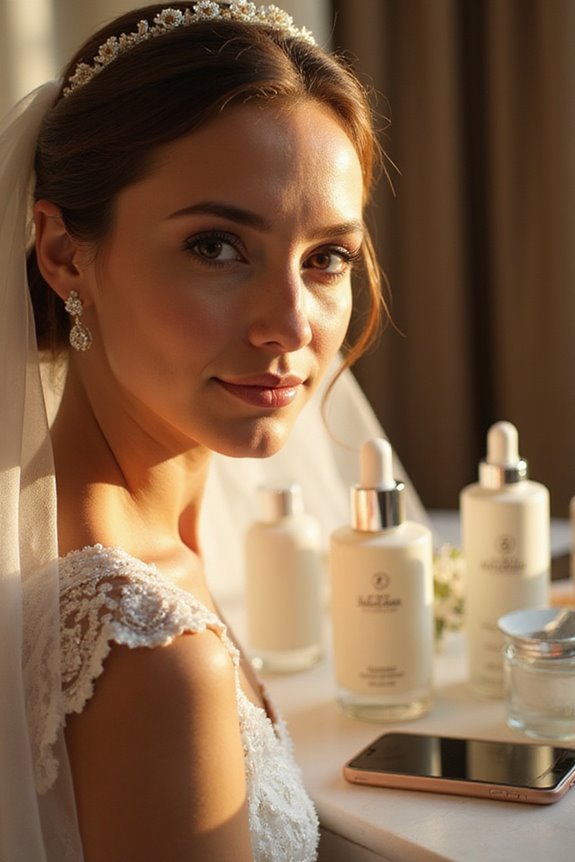
When it comes to skincare, knowing our skin type and sensitivity is like having a secret weapon in our beauty arsenal. First, we should do a skin assessment. Are we prone to burning or do we tan easily? This brings us to the Fitzpatrick classification. If we’re Type I or II, we may need extra care. Next, let’s consider basic skin types: normal, dry, oily, combination, and sensitive. For those of us with sensitive skin, sensitivity testing is essential. Do we notice redness or irritation easily? If so, we might need gentler products. By understanding our unique skin, we can choose the right antioxidants and moisturizers to keep blue light at bay—because we deserve to shine without worry!
Daily Protection: The Role of Sunscreens
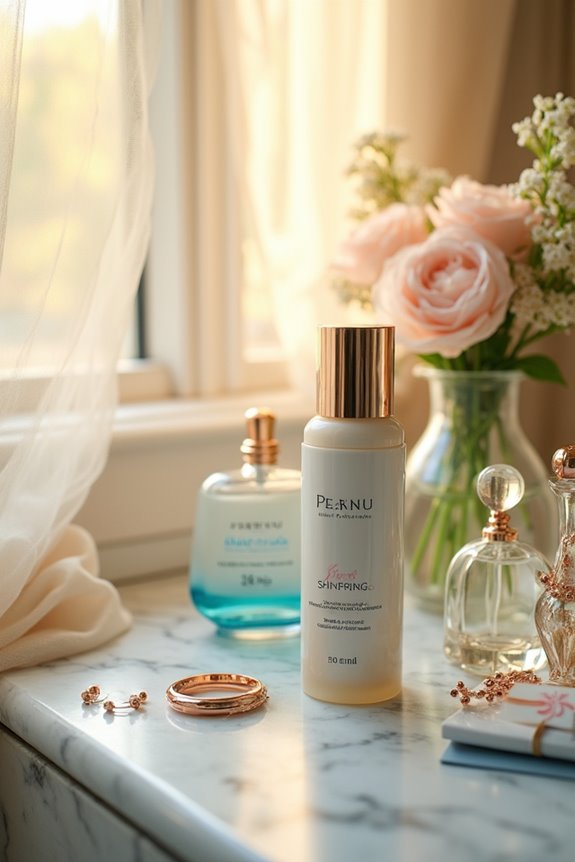
Protecting our skin from blue light is just as important as knowing our skin type, especially in today’s digital age. To keep our skin happy, we should choose the right sunscreen types. Mineral sunscreens with zinc oxide or titanium dioxide are great because they physically block blue light. Don’t forget to look for options that contain iron oxide for added protection!
Now, let’s talk application techniques. We need to apply sunscreen evenly on our face and neck daily, even if we’re just indoors. Reapplying every two to three hours is essential, especially during long screen time. And hey, layering on some antioxidants before sunscreen can boost our defense against pesky free radicals. Let’s keep our skin glowing and protected!
Incorporating Antioxidants Into Your Skincare Routine
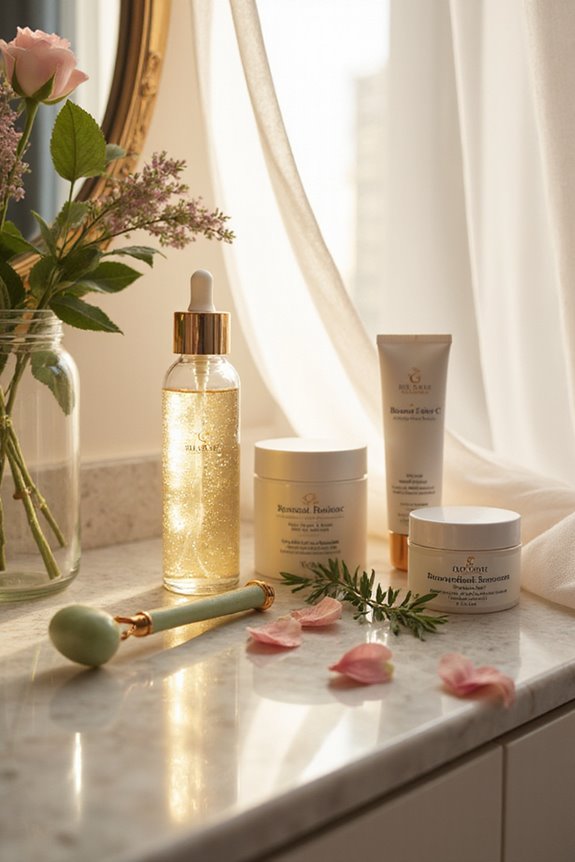
Incorporating antioxidants into our skincare routine can make a world of difference, especially when we’re battling the effects of blue light. These powerful antioxidant ingredients, like Vitamin C and E, help neutralize damaging free radicals. We can look for skincare formulations that include carotenoids, niacinamide, or plant extracts like ginseng for that extra boost.
To brighten our complexion and tackle hyperpigmentation, we should consider products with vitamin C. Plus, remember to pair our antioxidant-rich serums with a good sunscreen. It’s like having a protective shield! And let’s not forget that a diet rich in berries and leafy greens complements our skincare efforts. Together, we can keep our skin healthy and resilient against blue light damage.
Limiting Blue Light Exposure From Devices
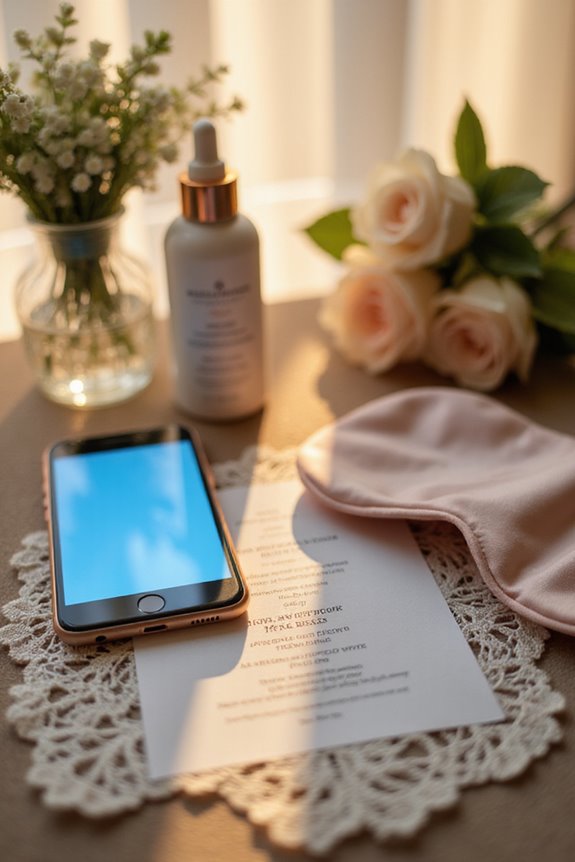
After we’ve added those powerful antioxidants to our skincare routine, it’s time to think about how we interact with our devices. We all know that too much screen time can really take a toll on our skin. So, let’s reduce that daily exposure! Short sessions with regular breaks can help minimize stress on our skin cells.
Next, let’s adjust our device settings. Enabling “night mode” or a blue light filter can drastically lower blue light emissions. Lowering screen brightness is another easy fix.
Finally, let’s maintain some distance from our screens. Keeping them further away can lessen the impact. By making these small changes, we can better protect our skin while still enjoying our favorite devices.
Protective Clothing and Accessories
When we think about shielding our skin from blue light, clothing and accessories can really come to the rescue. Protective garments like UPF 50+ sun sleeves block a whopping 98% of harmful rays. Pair those with UV umbrellas when outdoors, and you’ve got a solid defense.
For extra coverage, consider layered masks and breathable materials that shield your face and neck. Don’t forget dark colors; they work better against blue light than lighter shades. Performance fabrics can keep us comfortable while ensuring we’re protected. And let’s not overlook protective gloves for our hands, which often get neglected. By mixing and matching these essentials, we can enjoy the outdoors worry-free! After all, looking good while being safe is a win-win!
Nighttime Repair Strategies for Skin Health
As we wind down for the night, our skin deserves a little extra TLC—especially if it’s taken a beating from blue light during the day. To support skin recovery, let’s start with nighttime moisturizers packed with ingredients like ceramides and fatty acids. These help repair our skin barrier, locking in moisture and keeping irritants out.
Next, we can apply topical antioxidants like vitamin C and niacinamide to combat oxidative stress. They’ll work wonders while we sleep!
Don’t forget about hydration, too. Humectants like hyaluronic acid can restore moisture, while soothing agents like aloe vera calm inflammation.
With these strategies, we can wake up to refreshed, resilient skin—ready to face whatever the day throws at us!
Future Trends in Blue Light Protection Research
With our skin now well-rested from nighttime repair strategies, it’s exciting to look ahead at the future of blue light protection research. The market’s projected growth means ingredient innovation is booming. Companies like DSM and BASF are creating new blue light filters that not only protect but also enhance skin health. However, we face regulatory challenges as guidelines tighten around these ingredients. This means we’ll see more multifunctional products that combine blue light protection with anti-aging and hydration—perfect for our busy lives! As consumers, we should look for products that are eco-friendly and cruelty-free. Remember, staying informed will help us choose the best options for our skin’s needs. Let’s embrace the future of skincare!
Frequently Asked Questions
Can Blue Light Damage My Skin Even Indoors?
We’ve all noticed our skin looking tired after a long day in front of screens. Yes, blue light from indoor exposure can damage our skin, leading to premature aging and uneven pigmentation over time.
How Does Blue Light Exposure Affect Acne-Prone Skin?
It is understood blue light can be an acne trigger, increasing skin inflammation and sebum production. While it’s a treatment option for some, excessive exposure may worsen breakouts, so we must find balance.
Are There Specific Foods That Help Protect Against Blue Light Damage?
To protect against blue light damage, we can enjoy antioxidant-rich foods like blueberries. Their benefits include combating oxidative stress, while other nutrients from colorful fruits and vegetables support our overall eye health and resilience against harmful light exposure.
Does Makeup Provide Any Protection Against Blue Light Exposure?
When it comes to makeup, some makeup ingredients claim to act as blue light filters. However, we should remember that these products aren’t substitutes for proper sun protection; their effectiveness can vary and often lacks strong evidence.
How Can I Tell if My Skincare Products Protect Against Blue Light?
To determine if our skincare products protect against blue light, we should scrutinize ingredient labels for mentions of blue light defense and look for results from product testing that confirm their effectiveness in combating blue light exposure.

